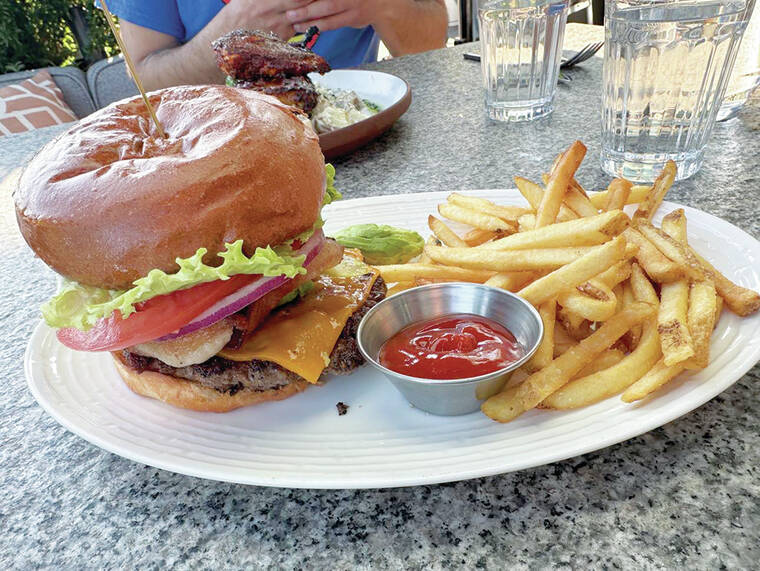Some of the main reasons why we choose to eat are simply that our lives are getting busier, and of course that many of the options are cheap, and it’s very convenient too. But what if you care about your health and want to choose healthier options, is that possible?
Absolutely, you can choose healthier options when eating out, you just need to be aware of hidden calories, such as sauces and some food additives. Restaurant food usually does not contain food labels, so you really need to ask. Personally, however, even when I choose to order the best option I often also really feel that my digestion is struggling after eating out. So what can we do to minimize this?
First, if you know which restaurant you are going to then you can check out their menu online and plan what you’re going to order. Many restaurants also provide calorie counts. Look for dishes that align with your dietary goals, such as meals with vegetables and lean proteins, and generally the simpler the better.
Restaurant portions are often very large, so sharing or asking for a smaller order can save some calories as well. I know it’s hard, but try to say no to appetizers as many of them contain more calories than the main meal. Choose dishes that are steamed, grilled, roasted, or broiled, rather than fried or sautéed.
Also, try to avoid meals named “creamy,” “battered” or “breaded,” as they are usually high in calories and fat. Instead, ask for side salads with dressing on the side, and choose fruits and vegetables. Avoid drinking many extra calories from drinks, such as lemonade, iced tea, soda and alcoholic beverages, as they will only give you extra calories, not nutrients. Additives are delicious but can also add many calories, so ask for sauces on the side so you can use a little less.
Of course restaurants and fast food places try hard to make their items delicious, so they add extra salt, oils, and sugar to make them tastier. Many places also use low-quality, cheap ingredients to save money, so to be really aware of that. While saving time and money, you actually pay back with your health.
Also keep in mind that the actual calorie content can vary widely depending on portion size, preparation method and specific ingredients. Examples of high-calorie foods include burgers, especially when they’re large or have added components like cheese, bacon, or mayonnaise; pizza, with thick crusts and high-fat toppings like pepperoni, sausage, and extra cheese; fried chicken sandwiches or chicken buckets are usually high-calorie due to the batter and frying process; pasta dishes with creamy sauces, like fettuccine alfredo or macaroni and cheese, are high in calories; nachos are typically loaded with cheese and other high-fat toppings like sour cream and guacamole.
Chinese take-outs, such as chicken, sweet and sour pork, and fried rice can be high in both calories and sodium. Desserts, such as cheesecake, chocolate lava cake, or cookies often have a lot of sugar and oil. And even drinks can add a surprising amount of calories to a meal. For example, a soda and a large milkshake can easily exceed 800 calories.
Water is wonderful at controlling hunger signals, so drink plenty of it and you’ll find it a lot easier to say no to the extras, like the appetizer or large desert, that look so tempting but you know are not going to be good for you.
Of course, I understand that knowing what you need to do and applying it are very different things and not always easy. However, if you start to make one tiny change then you will still see the benefits on your health, both mentally and physically.
Ideally, making your own lunch and eating out less often is the best option. However, even if you don’t, you can still be healthy, just pay a little more attention and when you do eat out, just enjoy it.
Resources:
• Chuck Dinerstein, The American Council on Science and Health, March 29 2021. “Eating Out Is Killing You”. https://www.acsh.org/news/2021/03/29/eating-out-killing-you-15439
• Eva Gesteiro et al, National Library of Medicine, March 16 2022. “Eating out of Home: Influence on Nutrition, Health, and Policies: A Scoping Review”. https://www.ncbi.nlm.nih.gov/pmc/articles/PMC8953831/
• Science Daily, March 25 2021. “Frequent consumption of meals prepared away from home linked to increased risk of early death”. https://www.sciencedaily.com/releases/2021/03/ 210325084824.htm
•••
Ayda Ersoy is a nutritionist (Dip.C.N., Dip.S.N.); master trainer (CPT ACE, NCSF, CanfitPro); registered yoga teacher; founder, Health Angel Nutrition, Fitness and Wellness; and founder, SMS (Stability, Mobility Strength) Intuitive Training System.


